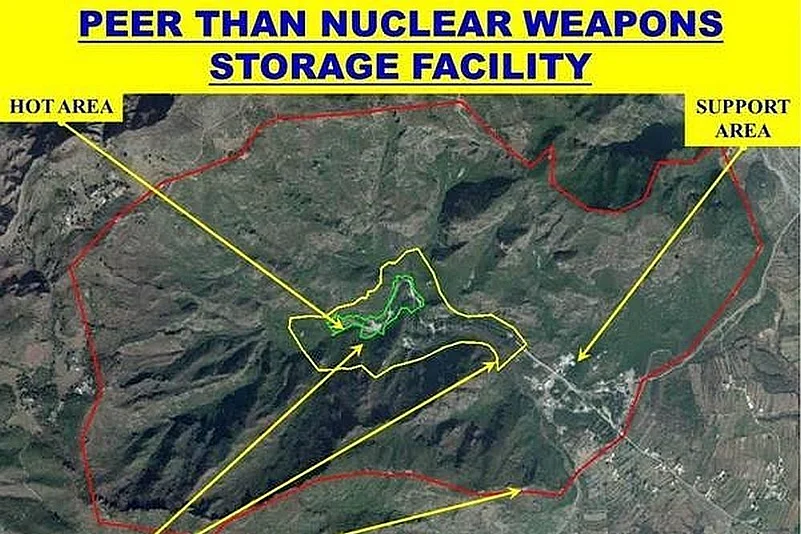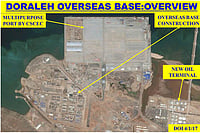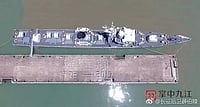Pakistan has built a nuclear weapons storage facility, till now unknown, at the foot of Peer Than Mountain near Haripur in Khyber Pakhtunkhwa.
Evidences suggest Pakistan would have deployed its nuclear missiles of Shaheen series in the facility, posing a grave threat to the whole of India. The facility, possibly the sixth nuclear capable missile bases, is located about 320km from Amritsar, 520km from Chandigarh and 720km from New Delhi.
Shaheen-III, Pakistan’s ballistic missiles capable of delivering a nuclear weapon, can hit targets as far as 2,750 kilometres effectively.
Pakistan has been working assiduously to safeguard its nuclear first strike capability and to maintain second strike capability. Pakistan has many safe havens constructed to ensure survivability of its nuclear arsenal from India’s first strike (different from first use).
In a series of exposes through open source Google Earth satellite imagery, we will sketch out Pakistan’s various underground and tunneled nuclear weapons storage facilities.

This tunneled facility, 35km from National Defence Complex (NDC), Fatehjung and Havelian Ammunition Depot, also makes targeting of mobile transporter erector launcher (TEL)s difficult. The exact location is 33 58 00N 72 45 30E.
The facility’s construction began in the first half of 2003 and completed around 2011. The Indian Army so far is unaware of the underground facility.
It has two main tunnels with three layered perimeter fence, support area with administrative office, mechanical transport (MT) garages, residential buildings and two Masjids.
There is still no clear-cut answer to how many such nuclear-capable missile bases are there in Pakistan, which has a stockpile of around 140 nuclear warheads.
Federation of American Scientists (FAS), says that There are at least five bases that might serve a role in Pakistan’s emerging nuclear posture. This includes army garrisons at Akro (Petaro), Gujranwala, Khuzdar, Pano Aqil, and Sargodha.” There is also a sixth base near Dera Ghazi Khan (29.9117, 70.4922), but the infrastructure is very different and not yet convincing.Some of these facilities could be used to deceive the enemy countries.
Hot Area
The Peer Than facility’s main area has two main tunnels with 8m wide entrances. It took 6 years to carve out tunnels in the mountains, indicating large areas that must be prepared inside the mountain. The height of cutout is approximately 25m. The tunnels entrances have been strengthened by cement concrete and compressed earth for 30-50m.

The hot area has two high bay garages that could be used for inspections and for repairs. There are six turning areas suggesting that these will also be used as launch pads. There are two more garages along the road which along with high bay garages would possibly be used for parking weapons on high alert.

Support Area
The support area consists of administrative office, MT garages and miscellaneous buildings which could possibly be used as residential accommodation. There are two Masjids, one of which is probably not used anymore.

Security
The facility has been provided with strong short range air defence (AD) cover.
It has single entry and exit road. There are six gates before reaching the entrance of the tunnels. The main gate is solid preventing any ground view inside the facility.
Pakistan does not have a publicized nuclear doctrine, but its policy of “minimum credible deterrent” is widely regarded as “maximum nuclear deterrence” designed to dissuade India from taking military action against it. Pakistan has an expanded capability to produce weapon grade nuclear material in quantities at least double its known capability of 100kg per annum. This means approximately 10-15 weapons per year. At a conservative estimate, Pakistan should be logically holding 140-215 warheads as of 2011.
(Colonel Vinayak Bhat is a military intelligence veteran of the Indian Army. He specialises in satellite imagery interpretation and analysis. He tweets @rajfortyseven)























